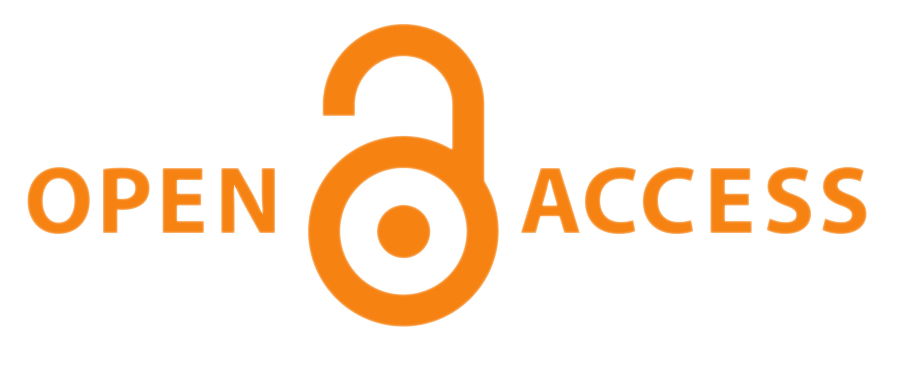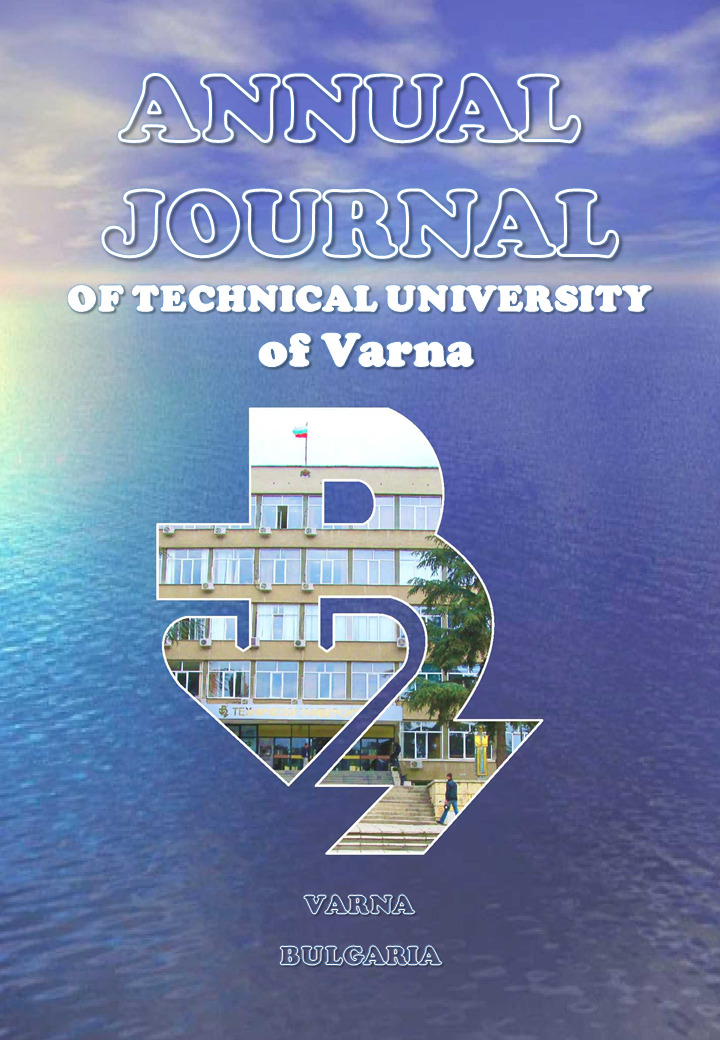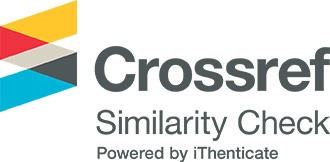Will emotional intelligence training enhance social workers’ emotional labour in Ogun State Nigeria?
##semicolon##
https://doi.org/10.29114/ajtuv.vol3.iss1.113##semicolon##
Emotional Labour##common.commaListSeparator## Emotional Intelligence##common.commaListSeparator## Social Workers##common.commaListSeparator## Surface Acting##common.commaListSeparator## Deep ActingАбстракт
This study investigated the effect of emotional intelligence training programme on emotional labour competence of social workers. The study adopted a pretest-post-test quasi-experimental design. The emotional labour scale was used to collect data from the forty-eight (48) randomly selected social workers from two Non-Governmental Organizations (NGOs). Participants of the study were randomly assigned to the treatment and the control groups for the purpose of the study. The hypothesis was tested using the Analysis of Covariant (ANCOVA). Results showed that the treatment significantly affected participants' levels of emotional labour. Based on the findings, it was advocated that the teaching of emotional intelligence in organizations and schools is highly important for optimal outcomes.
Изтегляния
##submission.citations##
<p>Fabricius, J. (1995) Psychoanalytic understanding and nursing: A supervisory workshop with nurse tutors. Psychoanalytic Psychotherapy, 9 (1), 1729.<br /><a href="https://doi.org/10.1080/02668739500700031" target="_blank" rel="noopener">Crossref</a><br /> <br />Farahbakhsh, S. (2012). The role of emotional intelligence in increasing quality of work life in school principals. Procedia - Social and Behavioral Sciences 46, 31 - 35<br /><a href="https://doi.org/10.1016/j.sbspro.2012.05.062" target="_blank" rel="noopener">Crossref</a><br /> <br />Gladwell, M. (2005). Blink: The power of thinking without thinking. London: Allen Lane.<br /> <br />Goleman, D. (1995). Emotional intelligence. New York: Bantam Books.<br /> <br />Grandey, A. (2000). Emotion regulation in the workplace: A new way to conceptualize emotional labour. Journal of Occupational Health Psychology, 5, 95-110.<br /><a href="https://doi.org/10.1037/1076-8998.5.1.95" target="_blank" rel="noopener">Crossref</a><br /> <br />Grandey, A. A. (2003). When 'the show must go on': surface acting and deep acting as determinants of emotional exhaustion and peer-rated service delivery. Academy of Management Journal, 46, 86-96.<br /><a href="https://doi.org/10.5465/30040678" target="_blank" rel="noopener">Crossref</a><br /> <br />Hartel, C. E. J., Zerbe, W. J., & Ashkanasy, N. M. (2005). Organizational behavior: An emotions perspective. In C. E. J. Hartel, W. J. Zerbe, & N. M. Ashkanasy (Ed) Emotion in organisational behaviour (pp 1-8). Mahwah, NJ: Lawrence Erlbaum Associates.<br /> <br />Harvey, P. & Dasborough, M.T. (2006). Consequences of employee attributions in the workplace: the role of emotional intelligence. Psicothema, 18, 145-151.<br /> <br />Hochschild, A. (1999). The Managed Heart: Commercialization of Human Feeling. University of California Press, Berkeley.<br /> <br />Hunter, B. (2001) Emotion work in midwifery. Journal of Advanced Nursing, 34(4), 436-444.<br /><a href="https://doi.org/10.1046/j.1365-2648.2001.01772.x" target="_blank" rel="noopener">Crossref</a><br /> <br />Jimoh, A. M. (2008). Emotional labour, conscientiousness and job tenure as predictors of job performance among University administrative workers in Southwestern Nigerian. International Journal of African & African- American Studies, 7,(2), 27-38.<br /> <br />Joseph, D. L., & Newman, D. A. (2010). Emotional intelligence: An integrative meta-analysis and cascading model. Journal of Applied Psychology, 95, 54-78.<br /><a href="https://doi.org/10.1037/a0017286" target="_blank" rel="noopener">Crossref</a><br /> <br />Kirk, B. A., Schutte, N. S., & Hine, D. W. (2011). The effect of an expressive writing interven-tion for employees on emotional self-efficacy, emotional intelligence, affect, and work-place incivility. Journal of Applied Social Psychology, 41, 179-195.<br /><a href="https://doi.org/10.1111/j.1559-1816.2010.00708.x" target="_blank" rel="noopener">Crossref</a><br /> <br />Kruml, S., & Geddes, D. (2000). Catching five without burning out: Is there an ideal way to perform emotional labour? In N. M. Ashkanasy, C. E. J. Haerteu, & W. J. Zerbe. (Eds.), Emotional in the Workplace: Research Theory and Practice (pp. 177 - 188), Quorum Books, West Port, C T.<br /> <br />Liv, Y., Perrewe, P. L., Hochwarter, W. A., & Kacmar, C. J. (2004). Dispositional antecedents and consequences of emotional labour at work. Journal of Leadership and Organizational Studies, 10, 12-25.<br /><a href="https://doi.org/10.1177/107179190401000402" target="_blank" rel="noopener">Crossref</a><br /> <br />Martins, A., Ramalho, N., & Morin E. (2010). A comprehensive metaanalysis of the relationship between emotional intelligence and health. Personality and Individual Differences, 49, 554-564.<br /><a href="https://doi.org/10.1016/j.paid.2010.05.029" target="_blank" rel="noopener">Crossref</a><br /> <br />Mayer, J. D., & Salovey, P. (1997). What is emotional intelligence? In P. Salovey & D. Sluyter (Eds.), Emotional development and emotional intelligence: Implications for educators (pp. 3-31). New York, NY: Basic Books.<br /> <br />Mayer, J. D., Roberts, R. D., & Barsade, S. G. (2008). Human abilities: Emotional intelligence. Annual Review of Psychology, 59, 507-536.<br /><a href="https://doi.org/10.1146/annurev.psych.59.103006.093646" target="_blank" rel="noopener">Crossref</a><br /> <br />Meier, K. J., Mastracci, S. H., & Wilson, K. (2006). Gender and emotional link to performance. Public Administration Review, 5, 899-909.<br /><a href="https://doi.org/10.1111/j.1540-6210.2006.00657.x" target="_blank" rel="noopener">Crossref</a><br /> <br />Mestre J. M., MacCann, C., Guil, R., & Roberts, R. D. (2016). Models of cognitive ability and emotion can better inform contemporary emotional intelligence frameworks. Emotion Review, 8(4), 1-9.<br /><a href="https://doi.org/10.1177/1754073916650497" target="_blank" rel="noopener">Crossref</a><br /> <br />Moors, A., Ellsworth, P. C., Scherer, K. R., & Frijda, N. H. (2013). Appraisal theories of emotion: State of the art and future development. Emotion Review, 5, 119-124.<br /><a href="https://doi.org/10.1177/1754073912468165" target="_blank" rel="noopener">Crossref</a><br /> <br />Nwankwo, B. E., Kanu, G. C. & Obi, T. C. (2012). Emotional labour and psychological distress as predictors of work-family conflict among nurses. British Journal of Advanced Academic Research, 1(1), 68-81<br /> <br />Ogunyemi, A. O. (2006). Differential effectiveness of provocation, brainstorming and emotional mastery in fostering creativity and emotional intelligence of adolescents. An unpublished PhD Thesis. Olabisi Onabanjo University, Ago-Iwoye.<br /> <br />Ortner, C., Briner, E. L., & Marjanovic, Z. (2017). Believing is doing: Emotion regulation beliefs are associated with emotion regulation behavioral choices and subjective well-being. Europe's Journal of Psychology 13(1), 60-74<br /><a href="https://doi.org/10.5964/ejop.v13i1.1248" target="_blank" rel="noopener">Crossref</a><br /> <br />Palmer, B.; Walls, M.; Burgess, Z. & Stough, C. (2000). Emotional intelligence and effective leadership. Leadership and Organisational Development Journal, 22(1), 5 10.<br /><a href="https://doi.org/10.1108/01437730110380174" target="_blank" rel="noopener">Crossref</a><br /> <br />Panksepp, J. (2001). Affect as a fundamental substrate of consciousness. Paper Delivered at the ESRC Seminar Series on the Theoretical Foundations of Emotional Labour, University of East London, UK.<br /> <br />Parker, D., Summerfeldt, L., Hogan, M. & Majeski, S (2004). Emotional intelligence and academic success: examining the transition from high school to university. Journal of Personality and Individual Differences, 36, 163-17.<br /><a href="https://doi.org/10.1016/S0191-8869(03)00076-X" target="_blank" rel="noopener">Crossref</a><br /> <br />Peña-Sarrionandia, A., Mikolajczak, M., & Gross, J. J. (2015). Integrating emotion regulation and emotional intelligence traditions: A meta-analysis. Frontiers Psychology, 6. <br /><a href="https://doi.org/10.3389/fpsyg.2015.00160" target="_blank" rel="noopener">Crossref</a><br /> <br />Pratti, M. L. (2004). Emotional intelligence as a facilitator of the emotional labour process Un-published PhD Thesis Florida State University, College of Business.<br /> <br />Pugliesi, K., & Shook, S. (1997). Gender, jobs, and emotional labour in a complex organization. Social Perspectives on Emotion, 4, 283-316.<br /> <br />Rafaeli, A. & Worline, (2001). Individual Emotion in work organizations. Social Science Information, 4, 95-123.<br /><a href="https://doi.org/10.1177/053901801040001006" target="_blank" rel="noopener">Crossref</a><br /> <br />Rafaeli, A., & Sutton, R. L. (2000). Emotion regulation in customer service roles: Testing a model of emotional labour. Journal of Occupational Health Psychology, 8, 55-73.<br /><a href="https://doi.org/10.1037//1076-8998.8.1.55" target="_blank" rel="noopener">Crossref</a><br /> <br />Razmjoo, S. A. (2008). On the relationship between multiple intelligences and language success. The Reading Matrix, 8, 155-174. Retrieved April 19, 2017, from <a href="http://www.readingmatrix.com/articles/razmjoo/article.pdf" target="_blank" rel="noopener">http://www.readingmatrix.com/articles/razmjoo/article.pdf</a><br /> <br />Razmjoo, S. A., Sahragard, R., & Sadri, M. (2009). On the Relationship between multiple intelli-gences, vocabulary learning knowledge and vocabulary learning strategies among the Iranian. EFL Learners.<br /> <br />Reuben, E., Sapienza, P., & Zingales, L. (2009). Can we teach emotional intelligence? <br /><a href="https://doi.org/10.2139/ssrn.1915471" target="_blank" rel="noopener">Crossref</a><br /> <br />Ruiz-Aranda, D., Castillo, R., Salquero, J. M., Cabello, R., Fernandez-Berrocal, P., & Balluerka, N. (2012). Short and midterm effects of emotional intelligence training on adolescent mental health. Journal of Adolescent Health, 51, 462-467.<br /><a href="https://doi.org/10.1016/j.jadohealth.2012.02.003" target="_blank" rel="noopener">Crossref</a><br /> <br />Schanbroeck, J., & Jones, J. R. (2000). Antecedents of workplace emotional labour dimensions and moderators of their effects on physical symptoms. Journal of Organizational Behaviour, 21, 163-183.<br /><a href="https://doi.org/10.1002/(SICI)1099-1379(200003)21:2<163::AID-JOB37>3.0.CO;2-L" target="_blank" rel="noopener">Crossref</a><br /> <br />Schlegel, K., Grandjean, D., & Scherer, K. R. (2014). Introducing the Geneva emotion recognition test: An example of Rasch-based test development. Psychological Assessment, 26 (2), 666-672.<br /><a href="https://doi.org/10.1037/a0035246" target="_blank" rel="noopener">Crossref</a><br /> <br />Schutte, N. S., & Malouff, J. M. (2011). Emotional intelligence mediates the relationship between mindfulness and subjective well-being. Personality and Individual Differences, 50, 1116-1119.<br /><a href="https://doi.org/10.1016/j.paid.2011.01.037" target="_blank" rel="noopener">Crossref</a><br /> <br />Schutte, N. S., Malouff J. M., & Thorsteinsson, E. B. (2013). Increasing emotional intelligence through training: current status and future directions. The International Journal of Emotional Education, 5(1), 56-72<br /> <br />Selby, J. (2007). Empathy on demand: Creating genuine connections with colleagues, clients, and customers. Charlottesville VA: Hampton Roads Publishing.<br /> <br />Sellers, S. & Hunter, A. (2005). Private pain, public choices: influence of problems in the family of origin on career choices among a cohort of MSW students. Social Work Education, 24 (8), 869-881.<br /><a href="https://doi.org/10.1080/02615470500342223" target="_blank" rel="noopener">Crossref</a><br /> <br />Sharon, C., & Bolton, B. A. (2000). Who Cares? Offering emotion work as a 'gift' in the nursing labour process. Journal of Advanced Nursing 32 (3), 580-586.<br /><a href="https://doi.org/10.1046/j.1365-2648.2000.01516.x" target="_blank" rel="noopener">Crossref</a><br /> <br />Smith, J. (1998). Emotional intelligence and social work students: implication for education and practice effectiveness. International Journal of Learning 12 (7), 159- 168.<br /><a href="https://doi.org/10.18848/1447-9494/CGP/v12i07/48004" target="_blank" rel="noopener">Crossref</a><br /> <br />Smith, P. & Gray, B. (2000). The Emotional labour of nursing: how student and qualified nurse learn to care. Report on Nurse Education. Nursing Practice and Emotional Labour in the Contemporary NHS, London: South Bank University.<br /> <br />Smith, S. L., Ashburner, C., Smith, P., Cunningham, C., Gray, B., Lister, S., & Nash, S. (2003). Cognitive sculpting the RCN clinical leadership programme. In S. Dopson and A.L. Mark (Eds.) Leading Healthcare Organisation. Basingstoke: Palgrave Macmillan, pp.1629.<br /> <br />Spörrle, M., Welpe, I. M., & Försterling, F. (2006). Cognitions as determinants of (mal) adaptive emotions and emotionally intelligent behaviour in an organizational context. Psicothema, 18, 165-171.<br /> <br />Stenross, B., & Kleinman, S. (1989). The highs and lows of emotional labour: Encounters with criminals and victims. Journal of Contemporary Ethnography, 17, 435-452<br /><a href="https://doi.org/10.1177/089124189017004003" target="_blank" rel="noopener">Crossref</a><br /> <br />Taylor, S., & Tyler, M. (2000). Emotional labour and sexual differences in the airline industry. Work, Employment and Society, 14, 77-95.<br /><a href="https://doi.org/10.1177/09500170022118275" target="_blank" rel="noopener">Crossref</a><br /> <br />Taylor, S. (1998). Emotional labour and the new workplace. In Thompson, P. and Warhurs, C.T. (eds) Workplaces of the future (pp. 84-103). London: Macmillan.<br /><a href="https://doi.org/10.1007/978-1-349-26346-2_5" target="_blank" rel="noopener">Crossref</a><br /> <br />Wharton, A. S. (2009). The sociology of emotional labour. Annual Review of Sociology, 35, 147-165<br /><a href="https://doi.org/10.1146/annurev-soc-070308-115944" target="_blank" rel="noopener">Crossref</a><br /> <br />Wing, J. F., Schutte, N. S., & Byrne, B. (2006). The effect of positive writing on emotional intelligence and life satisfaction. Journal of Clinical Psychology, 62, 1291-1302.<br /><a href="https://doi.org/10.1002/jclp.20292" target="_blank" rel="noopener">Crossref</a><br /> <br />Witt, L. A. (1999). This job is too much: Emotional labour on the job. Paper presented at the Annual Meeting of Society for Industrial and Organizational Psychology, Atlanta, GA.<br /> <br />Yagil, D., Luria, G., & Gal, I. (2008). Stressors and resources in customer service roles: Exploring the relationship between core self‐evaluations and burnout. International Journal of Service Industry Management 19(5), 575-595.<br /><a href="https://doi.org/10.1108/09564230810903479" target="_blank" rel="noopener">Crossref</a></p>
##submission.downloads##
Публикуван
##submission.howToCite##
Брой
Раздел (Секция)
##submission.license##
СПОРАЗУМЕНИЕ ЗА ПУБЛИКУВАНЕ
Годишника на Технически университет - Варна (ГТУВ) цели да гарантира, че постъпващите статии се публикуват, като същевременно се предоставя значителна свобода на публикуващите ги автори. За изпълнение на тази цел, ГТУВ поддържа гъвкава политика относно авторските права, което означава, че няма прехвърляне на авторски права от автора на издателя, а авторите запазват изключително авторско право върху интелектуалното си произведение.
При изпращане на статия, Отговорния автор трябва да се съгласи и приеме правилата и условията за публикуване, изложени в настоящото Споразумение за публикуване, които са както следва:
ПРЕДОСТАВЯНЕ НА ПРАВА ОТ ОТГОВОРНИЯ АВТОР
Отговорния автор предоставя на ГТУВ за времето на пълния срок на авторското право и всяко следващо удължаване или подновяване, следното:
• Неотменимо, неизключително право да публикува, възпроизвежда, предоставя, разпространява или по друг начин използва предоставената работа в електронни и печатни издания и в производни произведения в целия свят, на всички езици и във всички известни съществуващи или в последствие възникнали медии.
• Неотменимо, неизключително право да създава и съхранява електронни архивни копия на работата, включително правото да депозира предоставената работа в дигитални хранилища с отворен достъп.
• Неотменимо, неизключително право на лицензиране на други лица да възпроизвеждат, превеждат, преиздават, предоставят и разпространяват предоставената работа при условие, че авторите са надлежно идентифицирани (за момента това се извършва чрез публикуване на произведението под лиценз Creative Commons Attribution 4.0 Unported).
С предоставянето на работата за публикуване, авторските права върху материала остават на авторите. Авторите запазват всички патентни, търговски марки и/или други права върху интелектуалната си собственост.
ЗАДЪЛЖЕНИЯ НА ОТГОВОРНИЯ АВТОР И СЪАВТОРИТЕ
При последващо разпространение или повторно публикуване на предоставената работа, Отговорния автор се съгласява да идентифицира ГТУВ, в който е публикувано произведението като първоначален източник на първото публикуване на работата. Отговорния автор гарантира, че съавторите също ще посочват ГТУВ като източник на първото публикуване, когато разпространяват, преиздават или се позовават на настоящата работа в бъдещи свои публикации.
ГАРАНЦИИ ОТ СТРАНА НА ОТГОВОРНИЯ АВТОР
Отговорния автор гарантира че предоставената за публикуване работа не нарушава никои действащи нормативни разпоредби или законни права на която и да е трета страна. Същия гарантира че работата не съдържа какъвто и да е материал, който може да се възприеме от читателската аудитория като неетичен, компрометиращ, нехуманен, расистки, клеветнически и/или нарушаващ авторски и/или имуществени права, права на интелектуална собственост или поети ангажименти за поверителност към трети страни. Отговорния автор гарантира че предоставеният материал е с оригинално съдържание, не е официално публикуван в никое друго издателство, както и че не е в процес на публикуване пред други издателства. Отговорния автор също така гарантира че притежава съответните правомощия да сключи настоящото споразумение. Ако предоставяната работа е подготвена съвместно с други съавтори, Отговорния автор гарантира че всички останали съавтори са информирани и са съгласни предоставения материал да бъде публикуван в ГТУВ.
Отговорния автор лично (или от името на авторския колектив) дава съгласието си да не въвлича по никакъв начин ГТУВ като страна в каквито и да било научни, академични, административни и/или съдебни спорове, в случаите на установени нарушения на горепосочените декларации и гаранции.
ПРАВА И ЗАДЪЛЖЕНИЯ НА ГТУВ
ГТУВ се съгласява да публикува предоставения материал, в случаите когато същия отговаря напълно на всички необходими качествени, технически и редакционни изисквания, като го идентифицира еднозначно с авторите му. В следствие на настоящото споразумение, на ГТУВ се предоставя правомощие да упражнява права при необходимост от името на авторите върху трети лица, като например в случаите на установено плагиатство, нарушаване на авторски права и др.
Декларация за поверителност на лични данни
Вашите имена и имейл адреси, въведени в уебсайта на ГТУВ, ще бъдат използвани само и изключително за обявените цели на настоящото списание и няма да бъдат използвани за никакви други цели от издателя или предоставяни на друга - трета страна.
Издателят се задължава да извърши всички необходими действия, цялата предоставена лична информация да остане конфиденциална, в рамките на издателя и да не бъде споделена с външни обекти или субекти, освен ако не е дадено предварително изрично разрешение от собственика на личните данни.
Вашата лична информация няма да бъде обект на продажба, разпространение или публикуване по какъвто и да е начин и под каквато и да е форма.

 https://orcid.org0000-0002-5962-5238
https://orcid.org0000-0002-5962-5238







